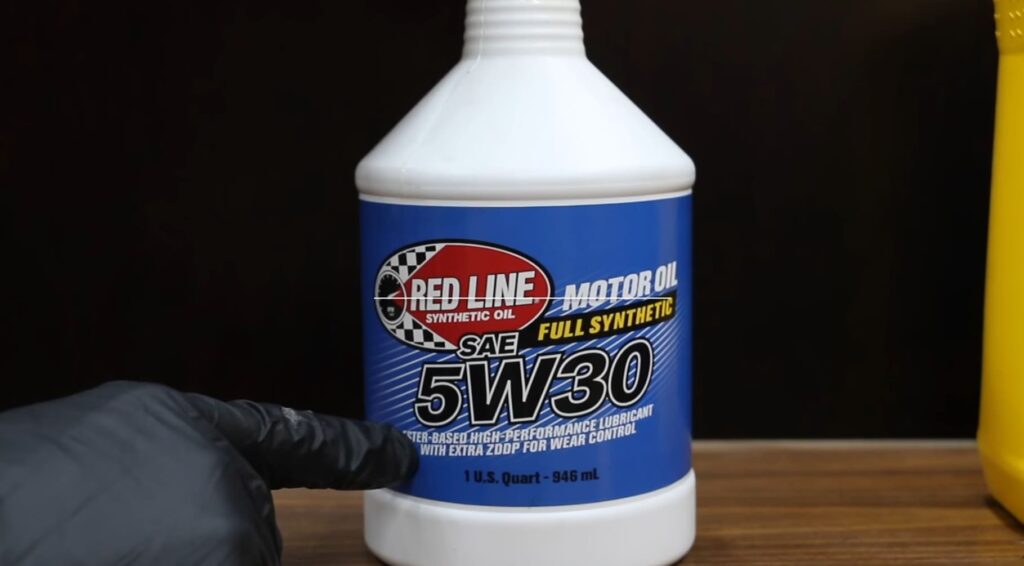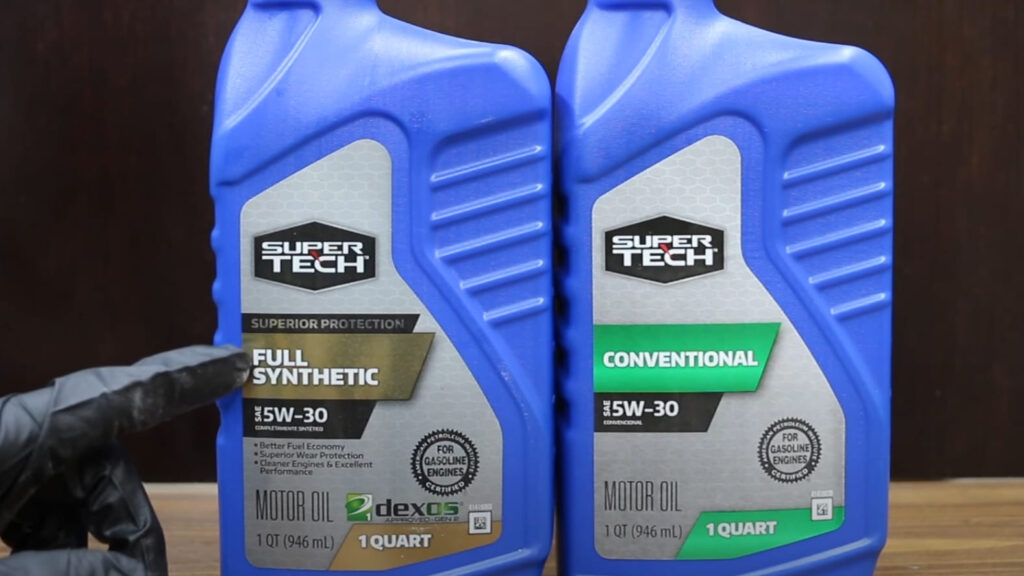Can You Mix Different Brands of Motor Oil?
It is essential for car owners to use the correct type of motor oil in their vehicles. Many people ask whether it is acceptable to mix different brands of motor oil, particularly when topping up their vehicle’s engine. This article will explore the effects of combining multiple brands of motor oil, so that drivers can make an informed decision about what type of product is best for their engine.
Is It OK to Mix Different Brands of Motor Oil?
It is generally not recommended to mix different brands of motor oil, as different brands may have different formulations and additives that can have adverse effects on your engine’s performance and longevity. Mixing different brands of motor oil can also cause inconsistencies in the oil’s viscosity, which can affect your engine’s lubrication and potentially cause damage.
However, if you need to top off your oil and you cannot find the same brand and type of oil that you currently have in your engine, you can use a different brand and type of oil as long as it meets the same specifications and viscosity requirements as the oil recommended by your vehicle’s manufacturer. In this case, it’s important to ensure that the two types of oil are compatible and that the viscosity ratings are the same.

In addition, you might be interested in mixing 5W20 and 5W30 oil. It is always best to consult your vehicle’s owner’s manual or speak with a certified mechanic before adding any new oil to your engine.
Сomposition Of Motor Oil
Motor oil is a complex mixture of base oils and additives designed to protect and lubricate engine components. The specific composition of motor oil can vary depending on the type and brand of oil. However, here are some common components that are typically found in motor oil:
- Base oils: These are the main component of motor oil and are typically made from crude oil that has been refined to remove impurities. Base oils provide lubrication and help to reduce friction between engine components.
- Additives: These are chemical compounds that are added to motor oil to improve its performance and protect engine components. Some common additives found in motor oil include:
- Detergents: These help to clean engine components by removing deposits and contaminants.
- Dispersants: These help to prevent sludge and other deposits from forming in the engine.
- Anti-wear agents: These provide extra protection to engine components by forming a protective layer on metal surfaces.
- Friction modifiers: These help to reduce friction between engine components, which can improve fuel efficiency.
- Viscosity improvers: These help to maintain the oil’s viscosity at different temperatures.
- Pour point depressants: These are additives that help to reduce the oil’s pour point, or the lowest temperature at which the oil can flow.
- Antioxidants: These help to prevent the oil from breaking down due to heat and oxidation.
The composition of motor oil is carefully designed to provide the necessary lubrication, protection, and performance required by different types of engines.
How It May Be Useful To Mix Motor Oils Of Different Brands?
Mixing motor oils of different brands is generally not recommended because different brands of motor oil can have different additives and formulations, which can react in unpredictable ways when mixed together. Mixing oils of different grades or viscosities can also result in an oil mixture that does not provide adequate lubrication or protection for your engine.

However, in some emergency situations where you may not have access to the recommended motor oil for your vehicle, it is better to use an alternative brand or grade of oil rather than driving with no oil at all. In such cases, it is important to choose an oil that meets the viscosity and performance standards specified in your vehicle’s owner’s manual, and to avoid mixing oils of different grades or viscosities.
It is always best to use the recommended motor oil for your engine and to follow the oil change intervals specified in your owner’s manual. If you have any concerns about your motor oil or engine performance, it is recommended that you consult a qualified mechanic.
Types Of Motor Oils
There are several types of motor oils available on the market, each with its own unique characteristics and performance properties. Here are some of the most common types of motor oil:
- Conventional motor oil: This is the most basic type of motor oil and is made from crude oil that has been refined and blended with additives to meet certain performance standards. Conventional motor oil is typically the most affordable option but may require more frequent oil changes.
- Synthetic motor oil: Synthetic motor oil is made from artificially synthesized compounds and offers better performance and protection than conventional motor oil. It can also last longer between oil changes, making it a popular choice for high-performance engines.
- High-mileage motor oil: This type of motor oil is formulated specifically for engines with more than 75,000 miles. It contains additives that help to reduce oil consumption, prevent leaks, and improve engine performance.
- Diesel engine oil: Diesel engine oil is designed specifically for diesel engines and contains additives that help to protect against wear and tear, reduce emissions, and maintain engine cleanliness.
- Racing motor oil: Racing motor oil is formulated to provide superior performance under high-stress conditions, such as in race cars and high-performance sports cars. It is typically more expensive than other types of motor oil and may require more frequent oil changes.
- Eco-friendly motor oil: This type of motor oil is made from renewable resources and is designed to reduce the environmental impact of engine oil. It may contain bio-based oils or recycled materials and is often used in hybrid and electric vehicles.
- Multi-grade motor oil: Multi-grade motor oil is designed to perform well in a range of temperatures and is formulated with viscosity improvers that allow the oil to maintain its viscosity at different temperatures. Multi-grade motor oil is typically labeled with a viscosity rating, such as 10W-30 or 5W-20.
It’s important to choose the right type of motor oil for your vehicle based on the manufacturer’s recommendations and the driving conditions you typically encounter. Consult your vehicle’s owner’s manual or speak with a certified mechanic to determine the best type of motor oil for your engine.

How Useful Motor Oil?
Motor oil is an essential component of an engine’s lubrication system, and it serves several important functions that help to keep the engine running smoothly and efficiently. Here are some of the ways that motor oil is useful:
- Lubrication: One of the primary functions of motor oil is to lubricate the engine’s moving parts, such as the pistons, bearings, and camshafts. This reduces friction and wear between these parts and helps to prevent damage and overheating.
- Cleaning: Motor oil contains detergents and other additives that help to clean the engine by removing contaminants, such as dirt, debris, and sludge. This helps to prevent buildup in the engine and keep it running smoothly.
- Cooling: Motor oil also helps to dissipate heat from the engine by transferring it away from the moving parts and to the oil pan, where it can be cooled by the engine’s cooling system. This helps to prevent overheating and engine damage.
- Sealing: Motor oil also helps to seal the gaps between the engine’s moving parts, such as the piston rings and cylinder walls, which helps to prevent oil from leaking out and contaminants from getting in.
- Corrosion protection: Motor oil contains additives that help to protect engine components from corrosion and rust, which can help to extend the life of the engine.
Motor oil is a critical component of an engine’s performance and longevity. Regular oil changes and using the right type of oil for your engine can help to ensure that it stays running smoothly and efficiently.

What Is Dangerous Motor Oil?
Motor oil that is contaminated or degraded can become dangerous for several reasons:
- Reduced lubrication: If the motor oil becomes too contaminated or degraded, it may not be able to lubricate the motors moving parts effectively. This can lead to increased friction and wear on engine components, which can cause damage and potentially lead to engine failure.
- Overheating: Motor oil that has become contaminated or degraded may not be able to dissipate heat from the motor effectively. This can cause the motor to overheat, which can cause damage to internal components and potentially lead to motor failure.
- Sludge formation: If motor oil becomes contaminated with dirt, debris, or other contaminants, it can form sludge, which can build up in the motorand clog oil passages. This can reduce oil flow to critical motor components, leading to engine damage and potentially even motor failure.
- Corrosion: Motor oil that has become contaminated with water or other corrosive substances can cause corrosion of engine components, which can lead to motor damage and potentially even motor failure.
It is important to regularly change your motor oil and use the recommended oil for your motor to ensure that it stays in good condition and avoids potential dangers. If you suspect that your engine oil may be contaminated or degraded, it is important to have it checked and changed by a qualified mechanic.
FAQ
Can I create motor oil at home?
Creating motor oil at home is not recommended as it requires specialized knowledge, equipment, and chemicals that are not typically available to the average person. The process of making motor oil involves complex chemical reactions that require precise measurements and mixing techniques.
Moreover, the oil produced at home is likely to be of low quality and may not meet the performance standards required for modern engines. This could lead to engine damage or failure and can be dangerous to yourself and others on the road.
It is recommended that you purchase motor oil from a reputable supplier who meets the necessary quality standards and has the expertise to produce high-quality oil that will protect your engine and ensure it operates efficiently. You should always consult your vehicle’s owner’s manual or a qualified mechanic to determine the appropriate type of oil for your engine and follow the recommended oil change intervals.
Who created the motor oil?
The invention of motor oil can be attributed to several people who made contributions to the development of lubricating oils for use in internal combustion engines. However, the first person to develop a commercial motor oil was John D. Rockefeller, who founded the Standard Oil Company in the late 1800s.
Rockefeller’s company initially produced kerosene for lamps, but he soon realized the potential of the emerging automobile industry and began to produce lubricating oils for engines. Standard Oil’s first motor oil, called “Energine,” was introduced in 1896, and it quickly became the standard for engine lubrication.
Over time, other companies also entered the motor oil market, and new formulations were developed to meet the needs of different types of engines and operating conditions. Today, there are many different brands and types of motor oil available, each designed for specific applications and performance requirements.
Related Video: Will Mixing 10 Motor Oils Damage an Engine? Let’s find out!
Final Thoughts
Motor oil has brought numerous benefits to society since its invention. By serving as a lubricant, cleaner, and coolant, motor oil has played a critical role in maintaining the efficiency and longevity of internal combustion engines that power vehicles, machinery, and other equipment. Motor oil has enabled people to travel further and faster, facilitated the growth of various industries, and has contributed to the development of modern transportation systems, which have brought numerous economic and social benefits to society. Additionally, advancements in motor oil technology have led to the development of more environmentally friendly products that can help reduce emissions and promote sustainability. Overall, the benefits of motor oil have been significant, and it will continue to play an essential role in powering society for years to come.







